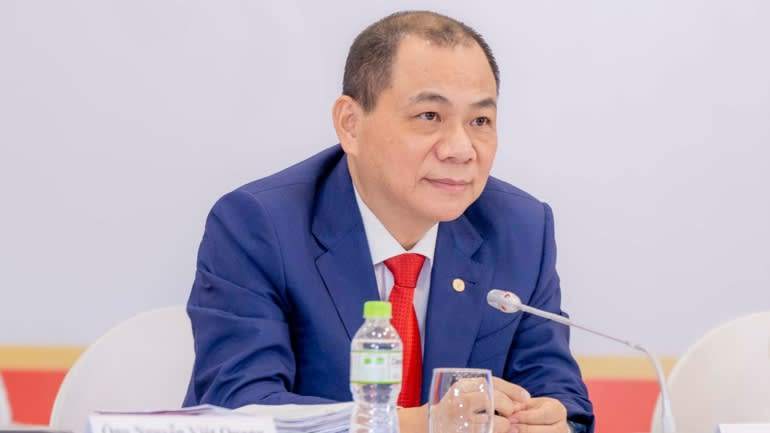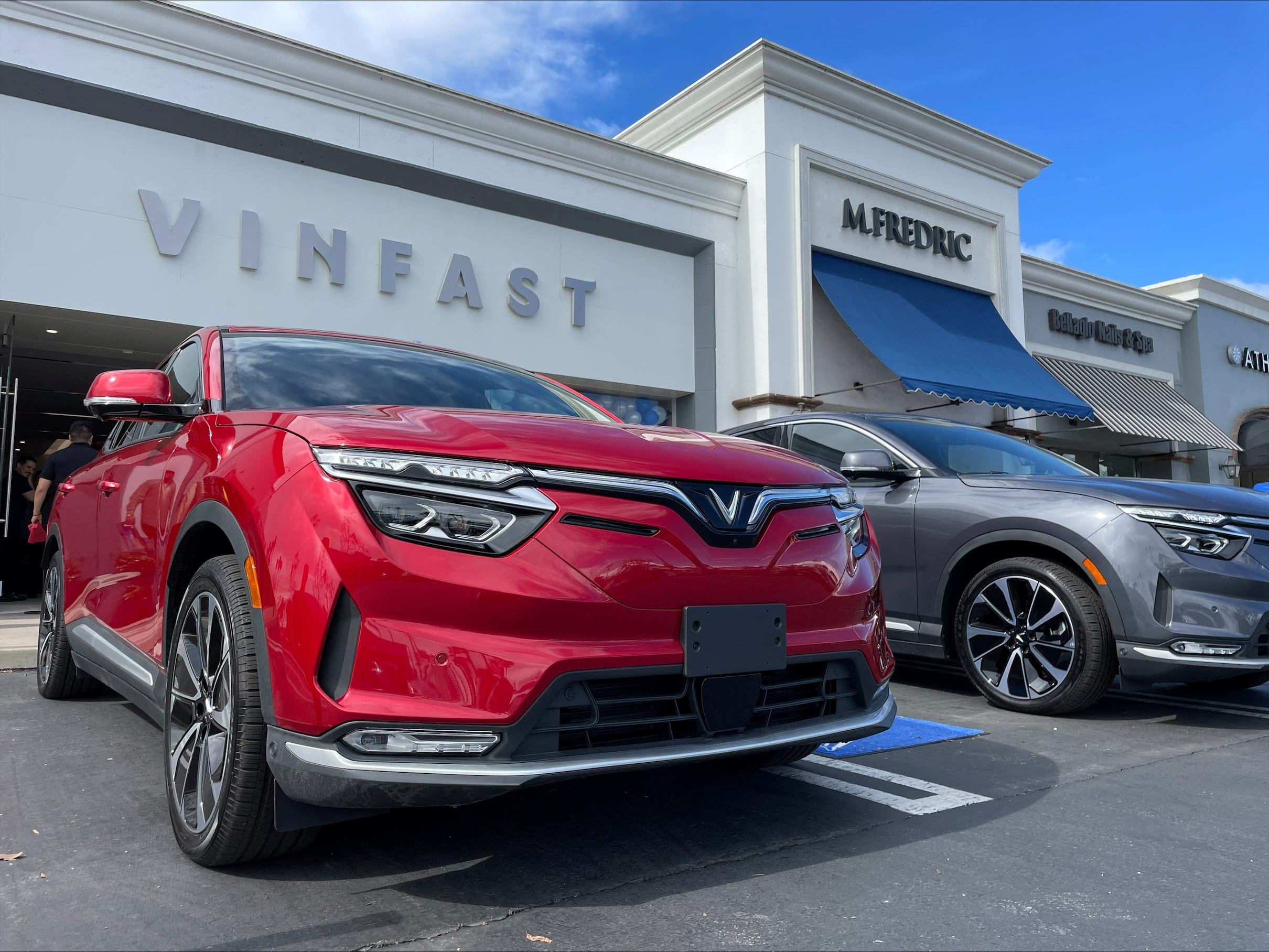VinFast CEO: $1 Billion to Stop EV Maker Bleeding
Pham Nhat Vuong, founder and CEO of Vingroup Group, pledged at the shareholders' meeting to invest another $1 billion in the Vietnamese electric car maker and consider listing other companies under its umbrella.
On April 25, Vingroup held its shareholder meeting. Founder and CEO Pham Nhat Vuong pledged at the meeting to invest an additional $1 billion in the Vietnamese electric car manufacturer to support its various companies in coping with escalating upfront expenses, and also considered taking other subsidiaries public.
Before the meeting, Vingroup reached an agreement with overseas creditors to extend the redemption date of bonds worth around $300 million by 18 months.
It's understood that Vuong holds 97% of VinFast directly and through his holding companies. Since last year, Vuong has personally invested $1 billion in VinFast, and additionally transferred his 99.8% stake in VinES to VinFast. As of the end of last year, Vuong and Vingroup had injected $11.4 billion into VinFast.
Currently, VinFast is listed on NASDAQ but remains in a loss-making position, although its losses narrowed in the first quarter. In the first three months of this year, the net loss was $618.3 million, a 12.3% reduction from the fourth quarter of last year; revenue was $302.6 million, a significant decrease from $436.5 million in the previous quarter, but a 269.7% increase from the same period last year.
While VinFast's stock price has plummeted, Vingroup has been selling stakes in other subsidiaries to maintain the operations of this car manufacturer. Last month, Vingroup announced the sale of its retail arm Vincom Retail and real estate subsidiary Vinhomes for $1.6 billion, the latter being one of Vingroup's main profit drivers.
Nevertheless, Vuong remains confident that the electric car market will continue to grow, surpassing internal combustion engine cars. "I won't give up on VinFast," he said. According to his forecast, VinFast could achieve break-even by 2025 and attain positive gross profit. He added that the company is repaying bank loans on schedule without any delays.

Throughout 2023, VinFast delivered nearly 35,000 vehicles, falling short of its annual target of at least 40,000. Due to this shortfall in deliveries compared to expectations, coupled with sustained operational losses, the company's stock price has plummeted from an initial $10 to $2.5.
Since its establishment in 2019, VinFast's journey of investment and expansion has been notable. In the northern city of Haiphong, the company has established a modern factory capable of producing approximately 950,000 electric and internal combustion vehicles annually. As VinFast gradually shifts towards specialized production of electric vehicles, internal combustion models are being phased out.
Subsequently, VinFast has made multiple unsuccessful attempts to enter foreign markets. Of the approximately 35,000 electric vehicles delivered last year, only 6,000 were produced overseas (mostly in the United States). Moreover, automotive giants such as Tesla, Volkswagen, and BYD dominate foreign markets with their strong financial backing, while newly expanding Chinese brands like GAC Aion and Chery pose formidable competition for VinFast in its overseas endeavors.

However, VinFast persists in advancing its plans. It is planning to establish three new factories in the United States, India, and Indonesia, with a total value of billions of dollars, to complement its existing facilities. According to Vietnamese government regulations, VinFast has achieved a domestic production localization rate of 60%, with more than half of its components sourced locally, furthering the government's goal of developing domestic industry.
With the soaring demand for electric vehicles, battery supply has become another potential bottleneck. Vuong has invested millions of dollars through Vingroup's subsidiary VinES in lithium battery factories in Vietnam and abroad, but it seems challenging to meet the current urgent demand.
Reports indicate that over 70% of the vehicles sold by VinFast last year were sold to GSM, Vuong's electric taxi company, with 10% sold to Vingroup and its subsidiaries. At the shareholders' meeting, Vuong proposed that, if conditions permit, he would drive GSM to be listed on the international market and also consider listing its hotel business, Vinpearl, this year.
·Original
Disclaimer: The views in this article are from the original Creator and do not represent the views or position of Hawk Insight. The content of the article is for reference, communication and learning only, and does not constitute investment advice. If it involves copyright issues, please contact us for deletion.